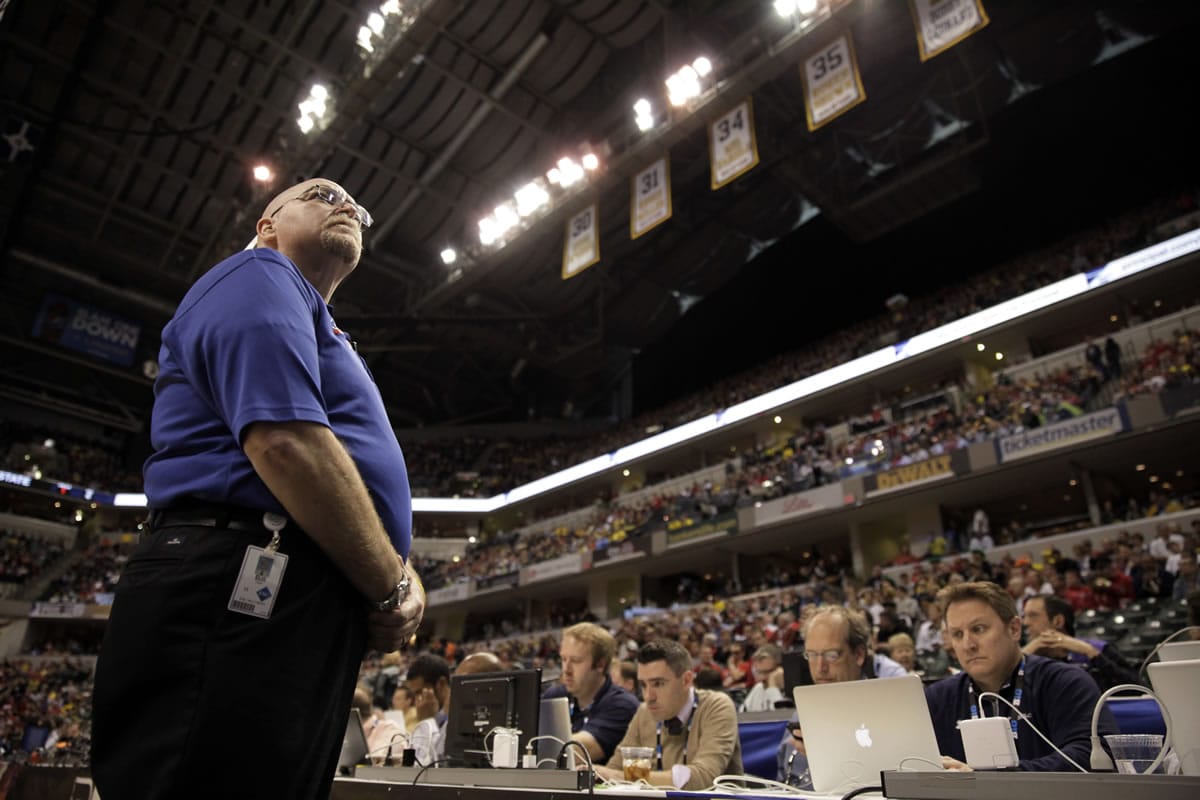As Minnesota Vikings fans were getting ready for the final game at the Metrodome in December, officials at Whelan Security noticed social media chatter suggesting some might rush the field and try to steal a piece of history.
The firm that provides security for the Vikings had more guards present that day to maintain calm during the team’s 14-13 win against Detroit.
They checked online chatter in part because there was a precedent for chaos: When the team had its final game in Metropolitan Stadium in 1981, fans rushed the field and nabbed anything and everything that wasn’t bolted down.
“It allowed us to have an idea of what was going on in the mindset of the people in the building so we could counteract that,” said Jeff Spoerndle, Whelan’s director of special services.
Turns out big brother is watching what fans are doing before they ever even scan a ticket to get inside a game. Security firms tasked with monitoring fan behavior to stop them from rushing the court, threatening a coach or player, or getting rowdy during a big game are increasingly turning to social media as a predictor of whether or not fans will get feisty.
The firms are taking their lead from police, who’ve long used Facebook, Twitter, Instagram and other sites to monitor chatter that could tip them off to potential criminal activity in their communities.
With the NCAA tournament in full swing, companies hired to provide security at venues from Spokane to Orlando, Fla., have an added option in watching for fans who might take things too far. As the popularity of sites like Facebook, Twitter and Instagram continues to grow, apparently so has their use by those protecting college and pro sporting events.
None of the security companies that worked the second and third-round sites for the NCAA tournament would discuss specific protocols with The Associated Press or disclose specifically what they’re looking for, saying it would defeat their efforts. But Mark Williams, security manager for NCAA tournament host Spokane Arena, acknowledged that monitoring social media is a common practice in the industry.
“What it does for us is that it gives us a heads up. It’s not our first line of defense and we don’t fall back on it. It’s information that helps us in our planning and in our preparation,” said David Yorio, managing director of New York-based Citadel Security Agency.
Some police departments and security firms have used social media as a way to control incidents popping up during games, too. Toronto police have long been proactive in the use of social media, and the department uses its official Twitter account to both monitor and listen to sports fans. Constable and social media officer Scott Mills noted that social media also can instantly affect fan behavior.
While staffing a Toronto FC game, he noticed that the soccer team’s supporters were throwing debris on the field specifically to get the attention of an attractive woman whose job included running out to clean up the mess. Mills called out the fans on Twitter, and they soon stopped.
“For the police and the security firm, if you have a communications strategy, using social media … you can get your message out for orderly conduct or for in the event of an emergency, to actually communicate with the fans,” he said.
Citadel, which handles promotional events for the NFL, NHL and Major League Soccer, considers social media an indispensable tool.
Yorio said Citadel will first look through the followers of a player or team on Twitter and Instagram and monitor hashtags and other communication for a potential or a direct threat. If anything suspicious pops up, Citadel will do a background check and see if they had applied for a media credential or bought a ticket, Yorio said. “It’s just mind-blowing that you can, in a 10- or 15-minute search, follow some hashtags, you follow a trail and you can uncover all kinds of information,” he said.



